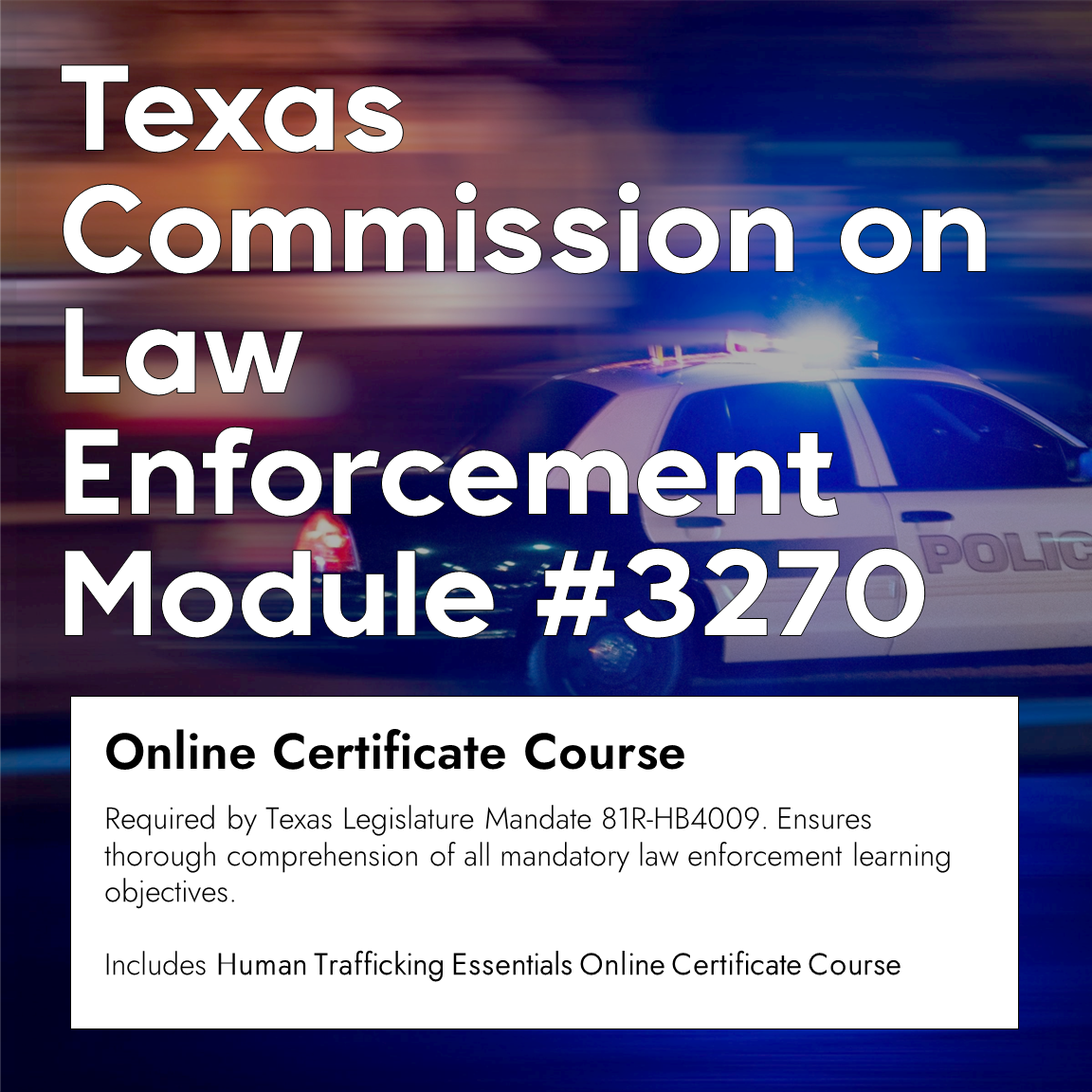Texas Commission on Law Enforcement Module #3270: Online Certificate Course
$699.99
Law Enforcement’s Role in Combating Human Trafficking in the State of Texas
Texas Commission on Law Enforcement (TCOLE) Module #3270 is specifically designed for Law Enforcement personnel, governmental and non-governmental agency personnel, and victim service providers as applicable, who are desiring to obtain knowledge and proficiency in the topic area of Human Trafficking.
Requires separate purchase and completion of Human Trafficking Essentials. Together, they dramatically exceed requirements of Texas’ legislature mandate 81R-HB4009.
Curriculum and legal resources for changes in subject matter or laws relating to this topic at the Texas Commission on Law Enforcement website at www.tcole.texas.gov
Please contact [email protected] to learn more
Out of stock
- Satisfaction Guaranteed
- No Hassle Refunds
- Secure Payments

